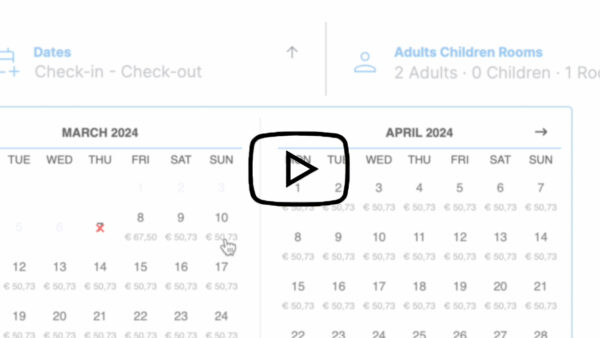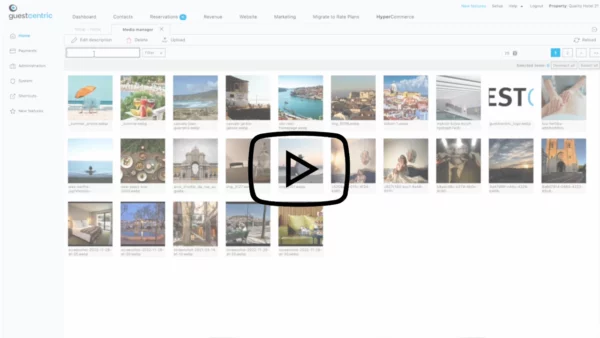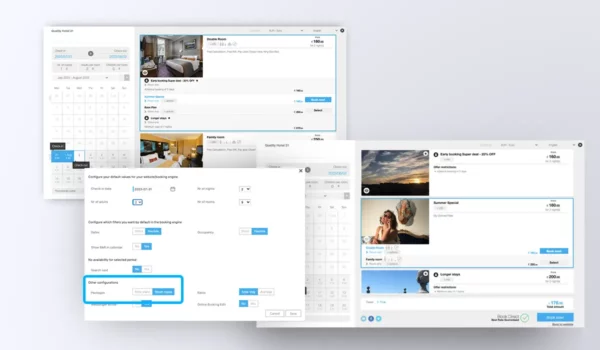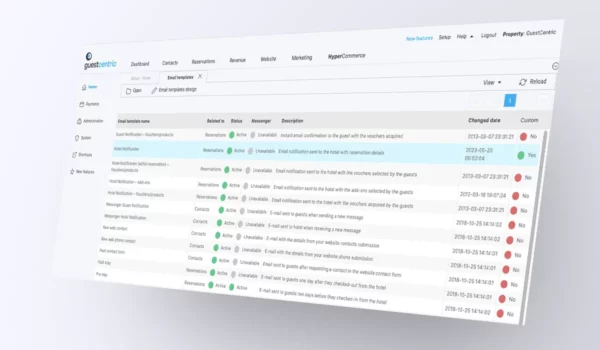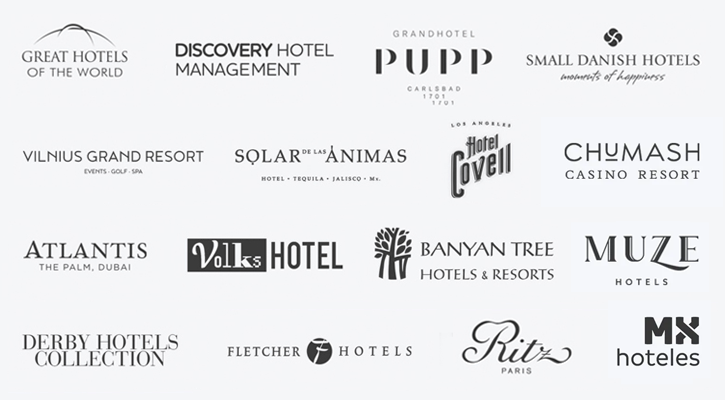GDS and the Changing Face of Hotel Distribution
Reading Time: 4 minutesIn the vast realm of hotel distribution, where technology reigns supreme, one pillar has stood the test of time: the Global Distribution System (GDS). This system has been a catalyst for transformation, reshaping the way hotels connect with travel agents, corporate managers, and travelers
While the emergence of OTAs initially impacted GDS usage, the travel industry has witnessed a resurgence in the adoption of GDS platforms.
Today, GDS remains the preferred choice for large travel agencies and corporate travel managers (CTMs), due to its comprehensive offerings and the valuable benefits it provides. In this article, we will explore 6 ways GDS has evolved over the years, and how these changes can empower hotels to drive successful online distribution and ultimately get more direct business.
6 Ways in which GDS have Evolved and the Benefits for Hotels
Global Distribution Systems (GDS) have indeed evolved significantly over the years, adapting to technological advancements and industry needs. These advancements have improved operational efficiency, expanded distribution reach, provided data-driven insights, empowered revenue management, and increased direct booking opportunities. Hotels can leverage these technological advancements to enhance their visibility, revenue streams, and overall competitiveness in the ever-evolving hospitality industry.
Here are 6 key ways in which GDS have evolved and the benefits they provide to hotels:
1. GDS Platforms have Competitive Versatility
One of the key strengths of GDS platforms lies in their ability to provide a complete travel experience by incorporating various aspects of a trip, including flights, hotels, car rentals, and more. Unlike other fragmented options, GDS offers a unified platform that brings together all the necessary components for a seamless travel booking process. This comprehensive approach not only simplifies the booking experience for travel agents but also ensures that all relevant hotel’s information is readily available in real time, being present on the booking process from start to end.
2. GDS Embraces Change and User-Friendly Interfaces
Recognizing the need to keep pace with evolving user expectations, GDS companies have undergone significant updates to enhance the user experience. The old green screen interface has given way to more modern, user-friendly interfaces like Sabre’s Red360, Amadeus Selling Platform and Travelport’s TripGate, that align with the ease of use offered by OTAs. Hoteliers can benefit from these enhancements, as travel agents find the information they need more efficiently.
With visual stimuli and comprehensive property details, hotels can promote and sell their accommodations effectively, increasing their visibility and attracting a wider audience, which the hotels may not have access to, with other distribution channels.
3. GDS is Adaptable to Any Device
Mobile technology has become an integral part of our lives and GDS platforms have adapted to this shift. By providing mobile-friendly solutions, hoteliers can cater to the needs of on-the-go travelers. Travel Management apps like TripSource (BCD Travel) or myCWT (CWT) are examples of the evolution in place, allowing hoteliers to reach and capture the attention of travelers who rely on their mobile devices for travel planning.
In this context, not only can hotels provide their online visibility through their own websites, but also make sure that they are present at every part of the corporate traveler’s journey, via these seamless GDS integrations.
4. GDS delivers Personalisation – A game-changer
In today’s highly competitive landscape, personalisation is the key to success. GDS has become a catalyst for delivering tailored experiences to guests. By leveraging guest profiles, booking history, and preferences, hotels can offer personalised recommendations, customised packages, and targeted promotions. This level of personalisation not only enhances guest satisfaction but also fosters brand loyalty, ultimately leading to increased revenue and repeat business for hoteliers, which can be fostered while having the customer onsite.
5. Opportunities for Hotels to Collaborate with other Hospitality Businesses
As the hospitality industry continues to evolve, collaboration in the GDS eco-system has emerged as a game-changer through forged partnerships with airlines, car rental companies, and tour operators, to offer bundled services and create unique hotel experiences.
The recent recovery in European flights, particularly driven by low-cost carriers like Ryanair and EasyJet, is a great example: on a recent announcement by Ryanair, one of Europe’s leading low-cost carriers, opening access to its flights through the Amadeus Travel Platform, which demonstrates the potential of collaboration and reach to different markets.
Hoteliers can tap into these collaborations to unlock new opportunities, particularly in the corporate travel segment, as these recent partnerships might expand their visibility to potential audiences, standing in the shadow so far.
6. Sustainability and Responsible Choices
As the hospitality industry places a growing emphasis on sustainability, hotels can leverage the changing face of distribution to support responsible brands and initiatives. Modern retailing allows hotels to showcase their sustainable practices and offer customers the option to choose environmentally friendly accommodations.
A clear example of how sustainability is taking a higher role on the business traveler choice, is the integration of the Amadeus GDS booking tool with Eco.mio. This integration allows guests to receive nudges and incentives on sustainable travel planning. As Eco.mio’s CEO – Katharina Riederer – explained: “A user won’t see a message that just says ‘please take the train instead of the plane’, it’ll be more like ‘hey, 80 per cent of your colleagues take the train on this route..”.
Conclusion
As a conclusion, Global Distribution System (GDS) presents itself as a powerful tool for hotels seeking to enhance their direct booking strategy. By offering a unified platform that integrates all essential elements of the travel booking process (flight, train, car, hotel), and due to its reach and influence in the travel industry, GDS provides guests with a simplified journey for corporate guests (from start-to-end) and to hotels, reaching a broader audience, expanding their visibility and attracting more potential guests.
Through travel agent’s mobile apps, hotels can establish a presence throughout the corporate traveler’s journey, ensuring continued engagement and fostering repeat business. Furthermore, GDS collaborations open new avenues for hotels, exposing them to previously untapped audiences and driving increased bookings. Overall, leveraging the capabilities of GDS can significantly stimulate hotels’ direct booking efforts and contribute to their overall success in the competitive hospitality industry.


